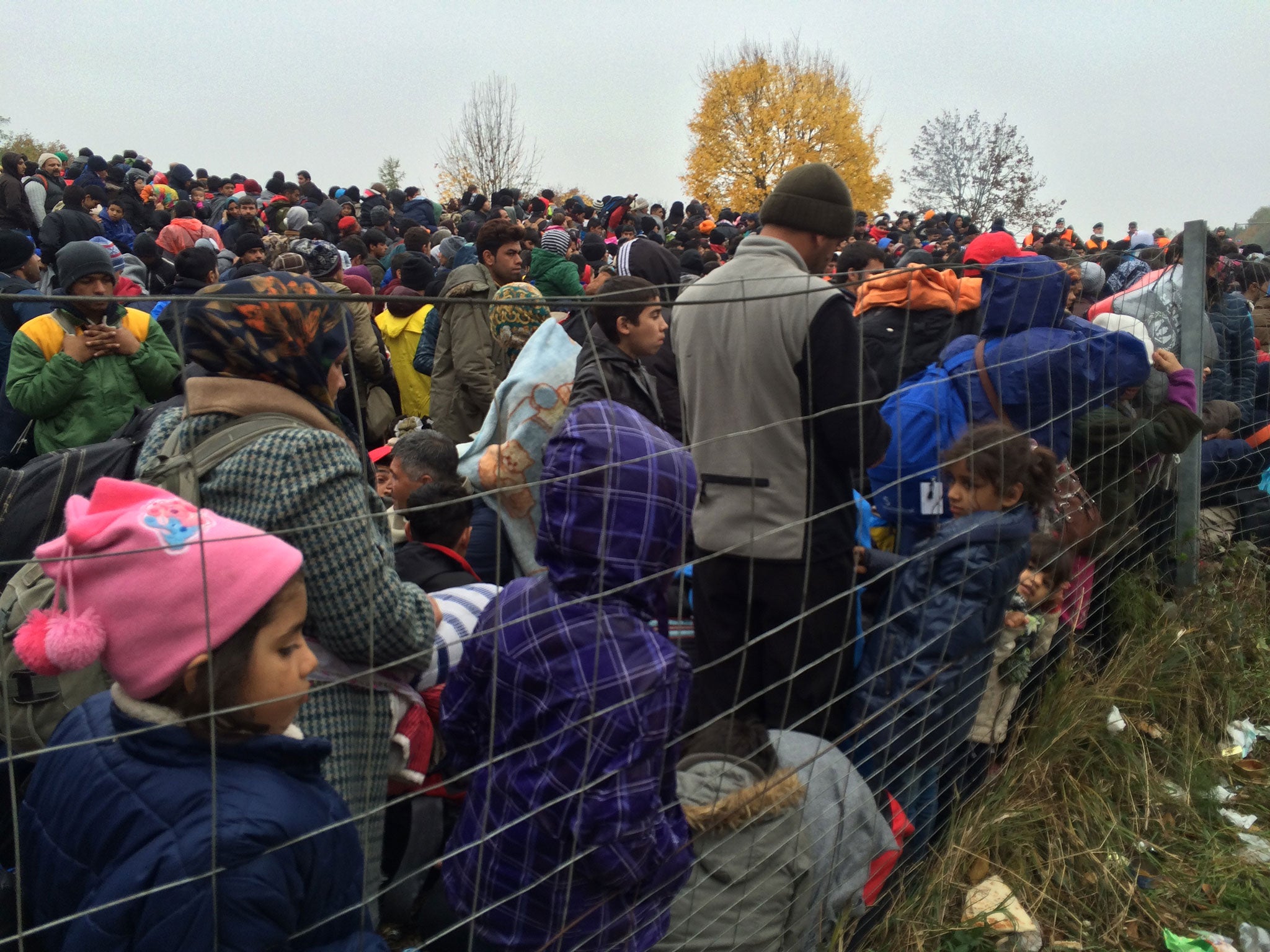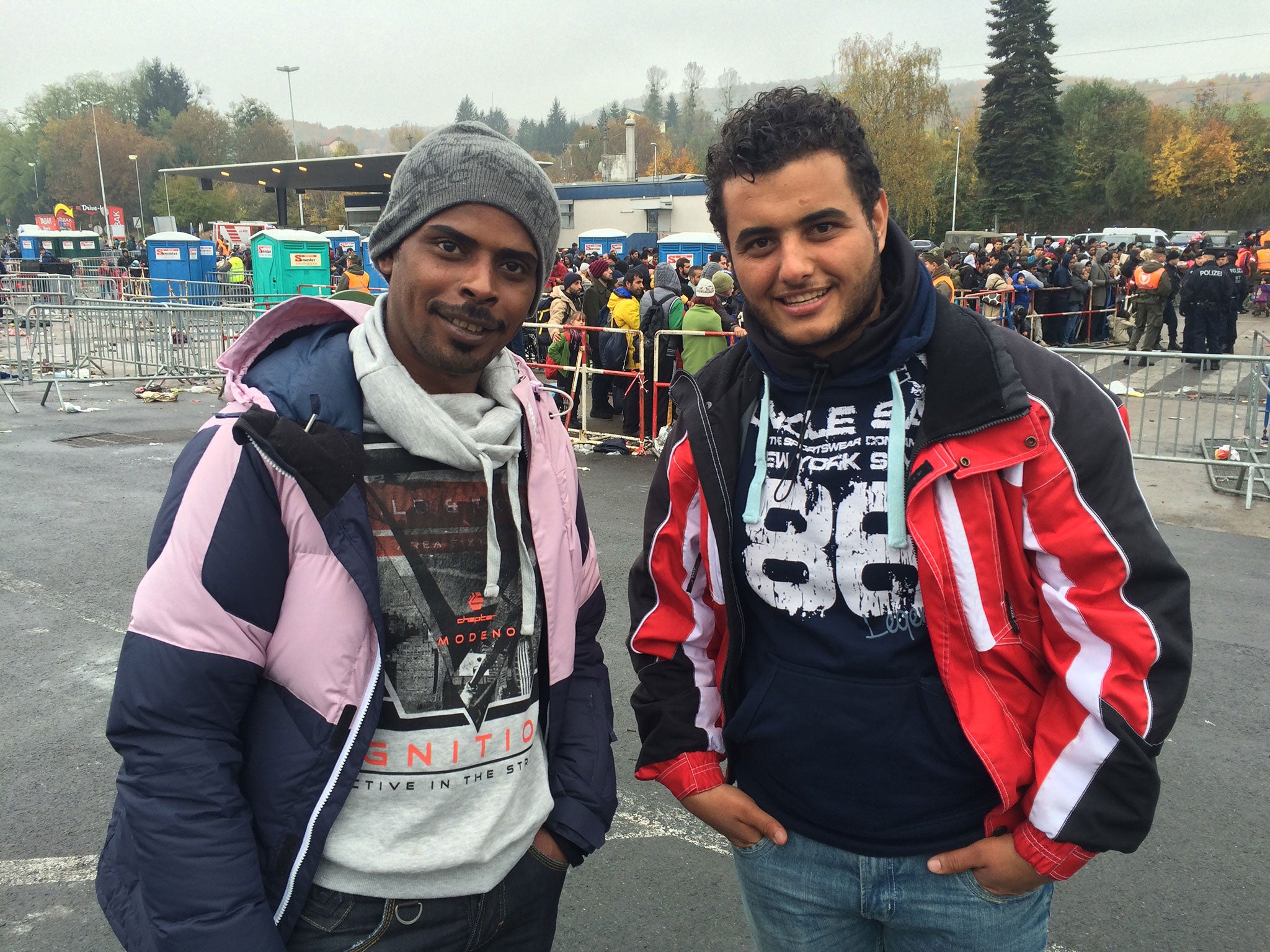Refugees' horror in Austria: 'It’s not human. We are treating them like sheep in pens'
Thousands of refugees are attempting to pass into the country from the Balkans

Your support helps us to tell the story
From reproductive rights to climate change to Big Tech, The Independent is on the ground when the story is developing. Whether it's investigating the financials of Elon Musk's pro-Trump PAC or producing our latest documentary, 'The A Word', which shines a light on the American women fighting for reproductive rights, we know how important it is to parse out the facts from the messaging.
At such a critical moment in US history, we need reporters on the ground. Your donation allows us to keep sending journalists to speak to both sides of the story.
The Independent is trusted by Americans across the entire political spectrum. And unlike many other quality news outlets, we choose not to lock Americans out of our reporting and analysis with paywalls. We believe quality journalism should be available to everyone, paid for by those who can afford it.
Your support makes all the difference.Less than two hundred metres from the chaos of the no man’s land between Austria and Slovenia, the Austrian army is trying to impose order.
Here at Spielfeld more than 150 Austrian police and 400 soldiers are shepherding up to 4,000 refugees a day onto a fleet of 60 buses. The buses head north to Graz, Vienna and Graz, another step on the journey to Germany, the final destination for most of the refugees travelling across Europe.
Austria has been criticised by authorities in Slovenia for the pace at which it is accepting refugees and earlier this week it briefly threatened to build a fence along its border, but police have been drafted in from across the country to deal with the numbers of arrivals.
Despite this, minor scuffles and pushing break out as Austrian soldiers struggle to keep family groups together as they load the refugees onto the buses.
Watching is Anna Brettchuh, a teacher who has travelled from Hamburg to hand out bread, milk and cookies with her seven-year-old son Leopold.
She said: “It’s horrible. I can’t believe what I’m seeing here and no locals are helping them. To think that the Austrians have talked about building a fence. It’s not human. We are treating them like sheep in pens. It's hard to see but my son had a project on refugees at school and I think it is important he see's this. It is important we all see it.“
Waiting by the line, grasping his Austrian identity card is Iraqi refugee Bashar Al Sadoun, 28. He arrived in Austria from Basra in May and somewhere in the mass of thousands of refugees on the border are his wife, two sons and sister-in-law. He has had on-off contact with his family on WhatsApp but now his wife's smartphone battery has gone flat. She is somewhere in the mass of queuing refugees. “I will be so happy when they get here. I can take them to Salzburg. I will see my babies, I don’t care about anything else.”

As Mr Al Sadoun is talking, an Austrian police approache and tried to move him into the line of refugees, only stopping when he realised that he already has Austrian citizenship.
The policeman is Wolfgang Braunsar, the police spokesman for the border crossing. “Sorry”, he said. “I did not know. We have received 3,000 refugees today and we expect many more thousands this evening. We are doing the best we can to move them other camps nearer Germany where they can be cared for.”
Mr Al Sadoun will have to wait to see his wife. If and when he spots her in the ground he won't be allowed to go to her, instead he will have to follow her bus and be reunited with her at the next camp. ”I will catch the train and follow her,“ he said. ”I will see her soon.“
Join our commenting forum
Join thought-provoking conversations, follow other Independent readers and see their replies
Comments